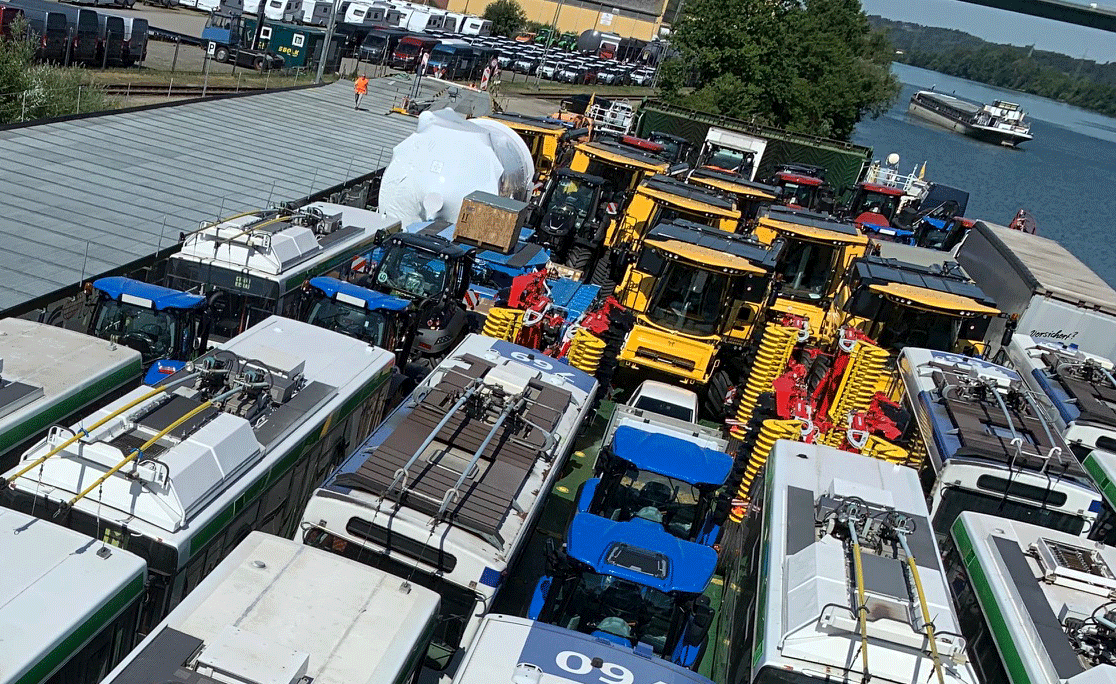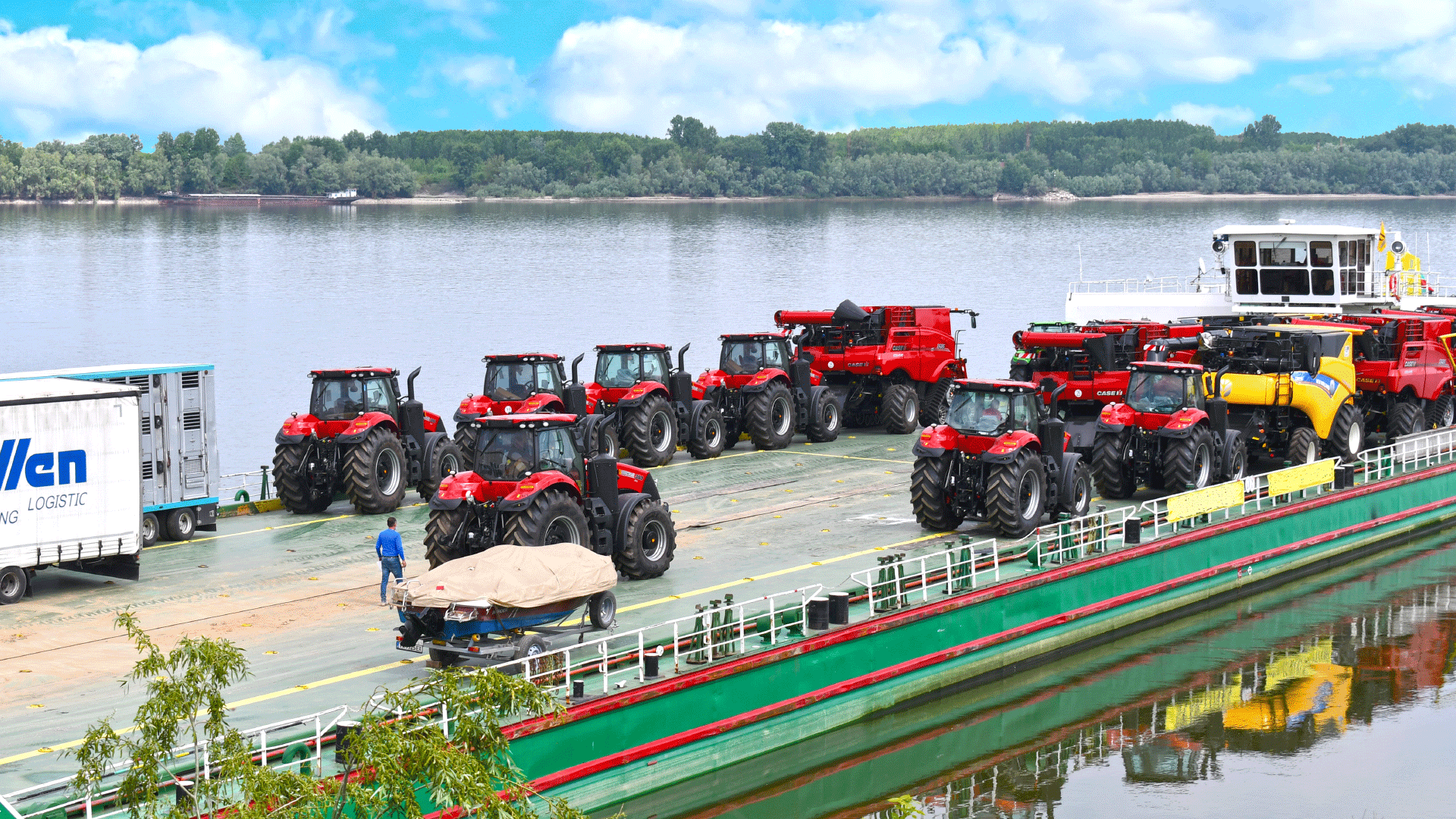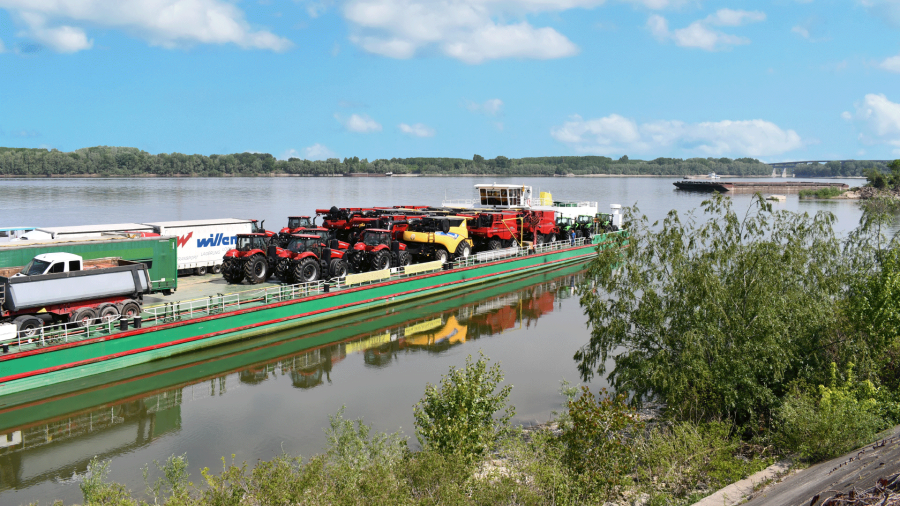The river Danube is a more efficient and environmentally-friendly method to transport new Case IH and New Holland combines from Belgium to destinations across Europe.
Previously, all combines were trucked by road from CNH Industrial’s hub in Zeebrugge, Belgium. In a new agreement with a third-part transporter, certain combine orders recently travelled 2,300km (1,430 miles) by river from Passau, Germany to Ruse, Bulgaria.

Main advantages of water travel include increased efficiency by transporting numerous combines at the same time. Also, with standard versions of the Case IH Axial Flow and New Holland CR combines weighing up to 24.5t (excludes header), water transport eliminates the need for special trucks and permits to travel on European roads.
River transport also means lower carbon-dioxide emissions and it is calculated that the 42 combine harvesters and higher horsepower tractors shipped in the pilot project resulted in 37t less CO² emissions.
“While river travel amounts to 10 to 15 days versus four to five via toll roads, organising the logistics and permits in the different countries along the highway routes means the overall time works out about the same or even better when road haulage services are unavailable,” says Dror Noach, head of transport logistics at CNH Industrial.

Encouraged by the success of the pilot project, the company plans to have more loading points along the river. River barges are also being considered, but combines would then have to be loaded by crane rather than be driven on.
Undeterred, the transport logistics team is looking to add lifting brackets close to the wheels when the combines are manufactured at the Case IH factory in Grand Island in Nebraska, before shipping them to Europe.
“This is an exciting option that would allow us to increase the service by shipping more units along the river,” says Silvia Menegon, head of EMEA logistics contracting at CNH Industrial.






